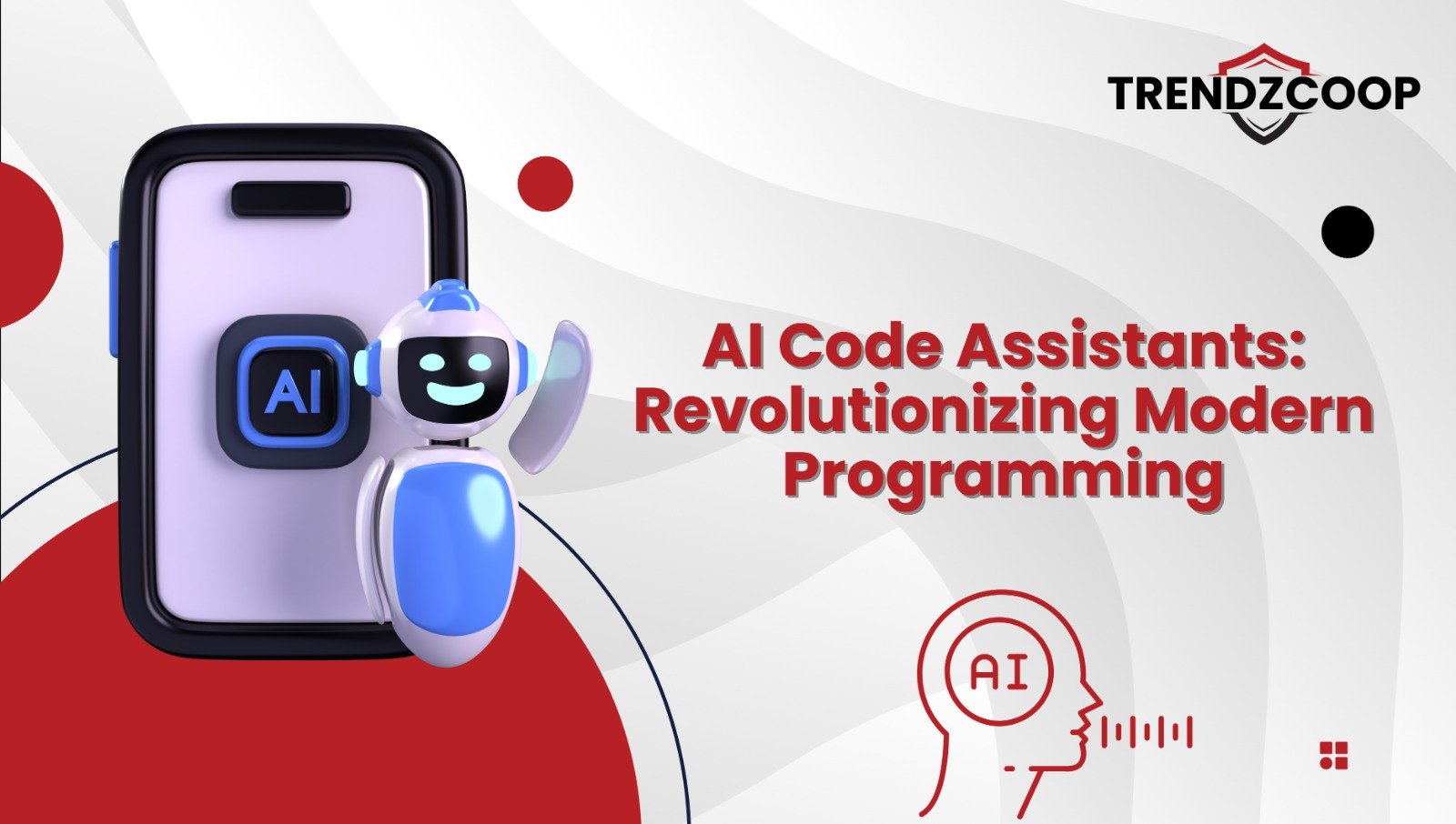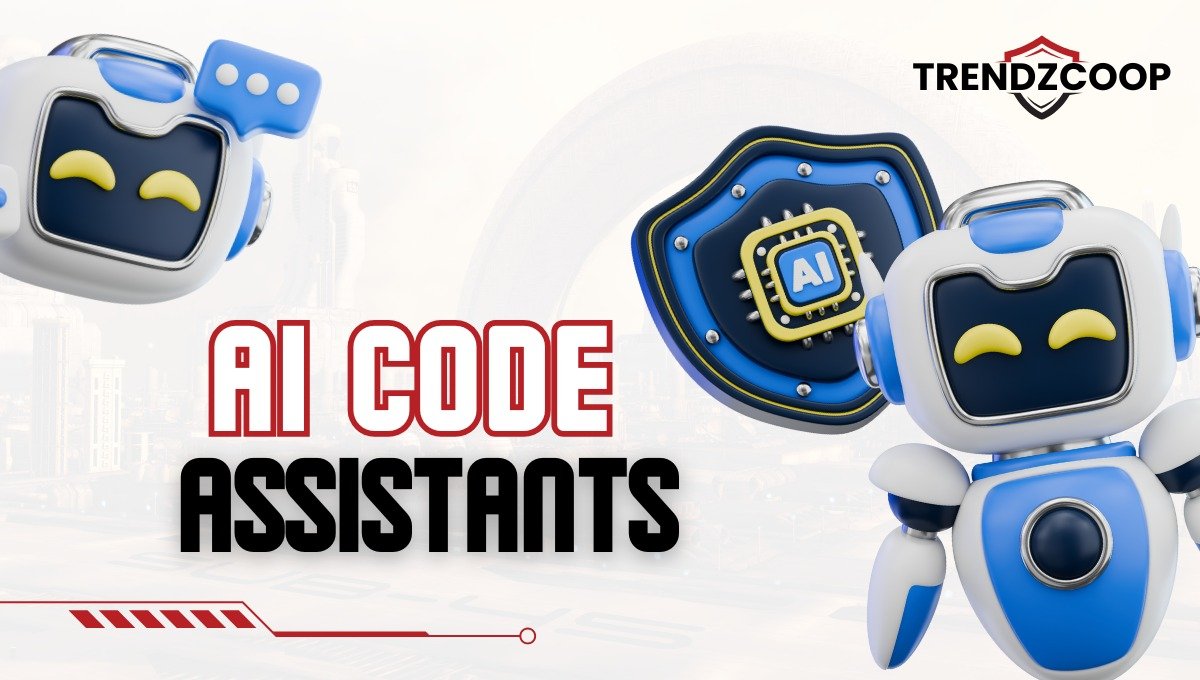Introduction
The software development landscape is transforming at an unprecedented pace, driven by the emergence of AI-powered coding assistants. Tools like GitHub Copilot, Amazon CodeWhisperer, and Tabnine are reshaping how developers write, debug, and optimize code. These intelligent systems act as virtual pair programmers, offering real-time suggestions that significantly enhance productivity while maintaining code quality.
Recent studies reveal that developers using AI assistants complete tasks up to 45% faster compared to traditional methods. Beyond speed, these tools bring tangible improvements in error detection, documentation generation, and code maintainability. As we examine this technological shift, we’ll explore how AI coding assistants work, their measurable benefits, current limitations, and what the future holds for this innovation.
Understanding AI Code Assistants
AI code assistants represent a sophisticated fusion of machine learning and software engineering. These systems train on vast repositories of public code – GitHub’s Copilot alone learned from billions of lines across multiple programming languages. Using advanced natural language processing (NLP), they interpret developer intent from plain English prompts and generate context-aware code snippets.
The underlying technology functions similarly to how predictive text works on smartphones, but with far greater complexity. When a developer begins typing a function or writes a comment describing desired functionality, the AI analyzes the context, cross-references its training data, and proposes syntactically correct implementations. For instance, when a programmer types “Python function to calculate factorial,” the assistant might instantly generate the complete recursive solution with proper docstrings.
The Transformational Benefits
The adoption of AI coding tools delivers measurable improvements across several critical development metrics. Productivity sees the most dramatic boost, with developers reporting they can focus more on architectural decisions rather than boilerplate code. A 2023 Stack Overflow survey found that teams using AI assistants complete standard programming tasks 55% faster on average.
Code quality undergoes significant enhancement through continuous static analysis. These tools flag potential bugs during the writing phase – from simple syntax errors to complex logical flaws like race conditions. They also enforce consistent coding standards, automatically applying formatting rules and suggesting optimizations that align with best practices like SOLID principles or PEP 8 guidelines.
Development cycles accelerate through the automation of repetitive tasks. AI assistants generate entire test suites, create boilerplate code for common patterns like CRUD operations, and even help migrate code between frameworks. This allows teams to iterate faster while maintaining robust quality control.
Core Capabilities Breakdown
Modern AI coding assistants offer an expanding suite of features that go beyond simple autocompletion. The most valuable functionalities include intelligent code suggestions that adapt to a project’s specific style and architecture. These systems analyze existing codebases to provide contextually relevant completions rather than generic snippets.
Advanced debugging capabilities represent another critical feature. The tools continuously analyze code as it’s written, identifying potential runtime errors, memory leaks, or security vulnerabilities before execution. Some systems can even propose fixes for detected issues, significantly reducing debugging time.
Refactoring assistance has become increasingly sophisticated. AI tools can recommend structural improvements, identify duplicate code blocks, and suggest performance optimizations. For legacy systems, they help modernize outdated syntax while preserving functionality.
Documentation generation completes the feature set. The assistants automatically create comprehensive docstrings, API references, and even high-level architectural documentation by analyzing code structure and comments. This proves particularly valuable for maintaining large, complex projects with multiple contributors.
Also read: Sikandar (2025) Movie Review: Salman Khan’s Power-Packed Action Drama
Challenges and Considerations
Despite their advantages, AI coding tools present several important considerations. Ethical concerns top the list, particularly regarding code originality. Since these systems train on publicly available code, there’s ongoing debate about intellectual property boundaries and potential plagiarism risks when suggesting solutions.
Security represents another critical consideration. While AI assistants help identify many vulnerabilities, they can occasionally suggest insecure implementations if their training data included flawed examples. Developers must remain vigilant about reviewing AI-generated code, especially for security-sensitive applications.
The potential impact on developer skills warrants attention. Over-reliance on automation might lead to erosion of fundamental programming knowledge, particularly among junior developers. The industry will need to adapt training programs to ensure core competencies aren’t neglected even as these tools become ubiquitous.
The Evolving Future
Looking ahead, AI coding assistants will likely become deeply integrated into all phases of software development. Gartner predicts that by 2027, 50% of enterprise development teams will routinely use AI-powered coding tools. We can expect these systems to take on more complex tasks, potentially generating entire modules from high-level specifications.
Developer roles will consequently evolve. Rather than focusing on manual coding, engineers may spend more time on system design, AI model training, and code review. The most valuable skills will shift toward architectural thinking, prompt engineering for AI systems, and quality assurance oversight.
Real-World Implementation Examples
Major technology companies provide compelling case studies of AI coding tools in action. Microsoft reported that GitHub Copilot reduced code review time by 35% across their development teams, primarily through automated test generation and standardization.
Startups using Tabnine demonstrated a 40% reduction in production bugs, attributing this improvement to the tool’s continuous static analysis catching errors during development rather than post-deployment. The AI’s ability to suggest optimized algorithms also helped improve application performance metrics.
Conclusion and Recommendations
AI code assistants represent a fundamental shift in software development practices, offering substantial efficiency gains while raising important questions about code ownership and skill development. For development teams, the optimal approach involves leveraging these tools to handle repetitive tasks while maintaining human oversight for critical thinking and quality control.
Organizations should implement structured adoption programs that include training on effective prompt engineering, establish guidelines for AI-generated code review, and continuously evaluate the impact on both productivity and code quality. As the technology matures, developers who master collaboration with AI systems will gain significant competitive advantages in the evolving software landscape.
For those beginning to explore this technology, starting with GitHub Copilot for general development or Amazon CodeWhisperer for AWS-centric projects provides accessible entry points. The key lies in viewing these tools as powerful assistants rather than replacements – amplifying human expertise rather than attempting to substitute it.





